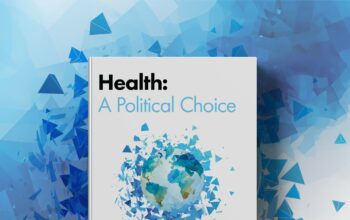Interview – Al Jazeera – How COVID-19 vaccine manufacturers are collaborating with governments to ensure that an effective and safe vaccine is available everywhere in the world
Watch full interview hereThomas Cueni, IFPMA Director General, spoke to Al Jazeera English, on the side lines of the World Health Summit, about collaboration between the pharmaceutical industry and governments to make sure COVID 19 vaccines are available in poorer countries; as well as industry’s commitment to the most rigorous regulatory scrutiny.
Maryam Nemazee
Also taking part in the World Health Summit is Thomas Cueni the director general of the International Federation of pharmaceutical manufacturers, joining us live from Basel, Switzerland.
As you know, there has been a great deal of concern about vaccine nationalism. I’m just wondering about the discussions that are taking place where you are and what you can tell us about collaboration between governments and the private sector to make sure that a vaccine is effective and available in poorer parts of the world, as well as in richer countries.
Thomas Cueni
Indeed, not just effective and available but also safe because, obviously, we want to have a vaccine as fast as possible but also make sure that we proceed as slow as needed, because we want to make sure that the vaccines are tested for safety and ethics once they reach the people.
Maryam Nemazee
But of course, if and when a vaccine is found, assuming that that that will happen, tell us about the challenges logistically in distributing so many doses.
Thomas Cueni
There are multiple challenges. Although you read about more than 200 vaccine projects in the world, there are probably not more than a handful of big pharma companies able to manufacture large scale, hundreds of million doses.
To give you a perspective, the largest vaccine volume ever produced is 450 million doses per year for polio. Now, for COVID-19 we are talking about a need of potentially 12 to 15 billion doses of a vaccine. This causes daunting challenges. For example, you need specialized glass vials, which are scarce. So instead of having single dose vaccines, you will need to have multi doses in one vial. You will need sufficient number of syringes, and you will also need specialized transportation and storage, because some of the most promising vaccines, and particularly those who are the most advanced, need ultra-cold chains (up to minus 80 degrees Celsius). Therefore, even in industrialized countries you cannot expect that this will be easy to get in your General Practitioner’s office.
Maryam Nemazee
Do you fear that in this rush to produce a vaccine that speed will take precedent over the safety?
Thomas Cueni
No, vaccine speed cannot compromise safety and efficacy.
I think that it is remarkable that the leaders of the biggest vaccine manufacturers have come out and expressed publicly when there was concern about political meddling in emergency use licensing, in speed and trumping vaccine safety or efficacy.
They have come out and said that they want to submit to the most rigorous regulatory scrutiny, to independent expert advisory committees and to go far beyond what’s normally needed in regulatory processes in terms of transparency and in terms of publishing safety data with good, as well as the bad, results of vaccines. Therefore, the companies are deeply conscious of this need – not just because of COVID-19 but also because of the number of anti vaxxers in the world.
We do not want to create a disaster by going too fast. We really need to move as fast as possible and as slow as needed.
Maryam Nemazee
Thank you very much. It was good to talk to you, Thomas B. Cueni
Author






